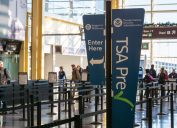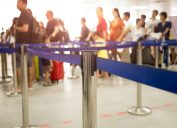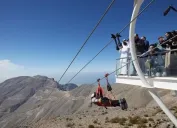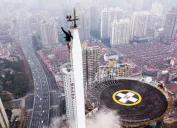10 Airport Security Secrets TSA Doesn't Want You to Know
A little extra knowledge could make your next trip much easier from the start.
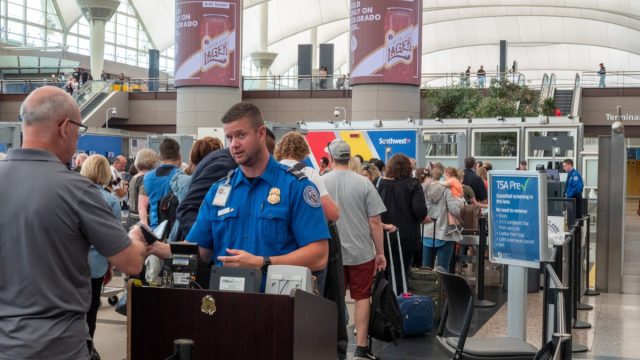
No matter what class of ticket you're holding, the one part of the travel process that everyone has to go through is the security checkpoint. The final step before reaching your gate is typically a dreaded experience, with passengers clamoring to remove necessary items while hoping to avoid an unexpected prolonged search. But while some parts of the Transportation Security Administration (TSA) guidelines like bans on large liquids are well known, there is a side to the process that many travelers may not be aware of. Read on to learn more about some of the security secrets that the TSA doesn't want you to know about.
READ THIS NEXT: 7 Clothing Items to Never Wear Through Airport Security, Experts Say.
1
Security checks can change from airport to airport.
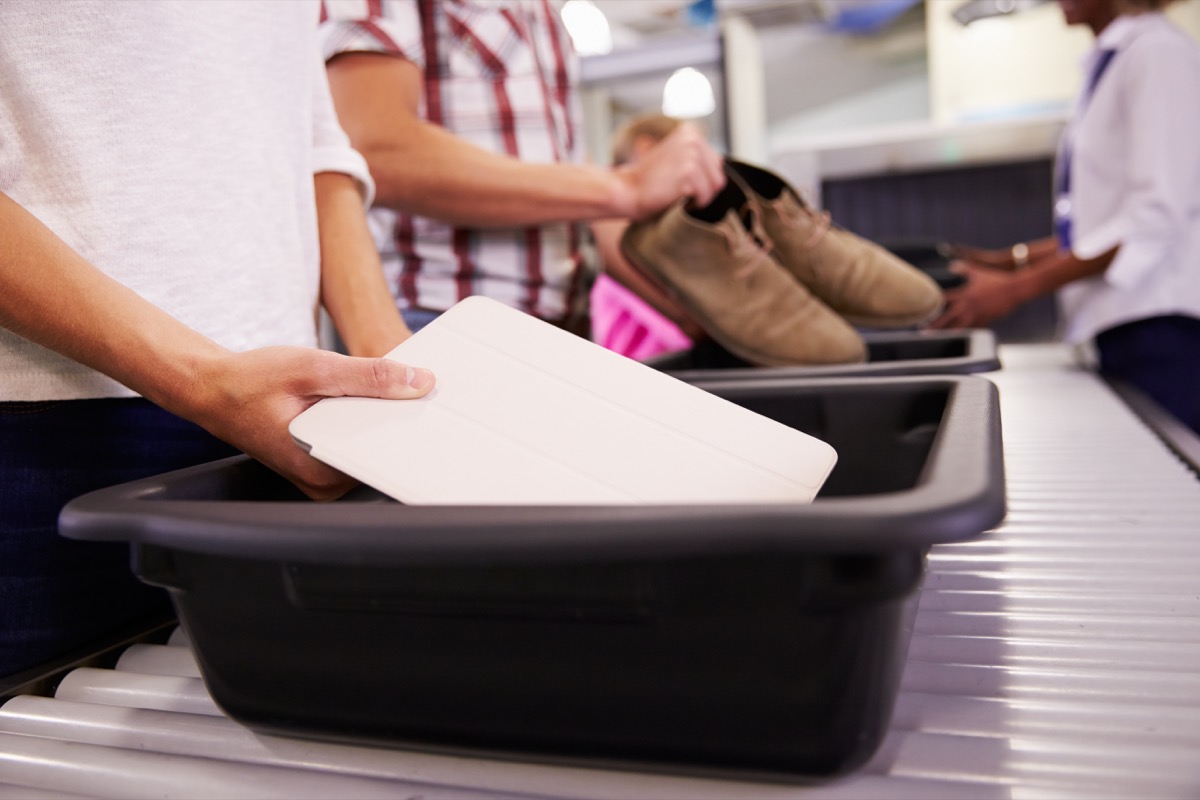
In many cases, it's easy to know what won't fly at a checkpoint. But besides throwing away your mostly full drink and packing your favorite pocket knife in your checked luggage, travel experts say there's still no guaranteed way to anticipate what will happen once you approach the agents at the front of the line.
"Some checkpoints require you to take off your shoes, while some let you leave shoes on. Some say to take laptops and iPads out of bags, while others say to leave them packed. The lesson is that anywhere you go, there is no steadfast standard for the process, which is frustrating," Heidi Ferguson, a flight attendant with 20 years of experience in the commercial and private aviation industry, previously told Best Life.
If you're concerned about getting slowed down too much, Ferguson suggests wearing a pair of shoes that are easy to put on and take off and avoid wearing a belt. You should also pack your carry-ons so that any liquids or electronics that might have to get pulled out at the scanning machine belt are easily accessible and not beneath piles of clothing.
2
Crew members get to pass through a separate check from regular passengers.
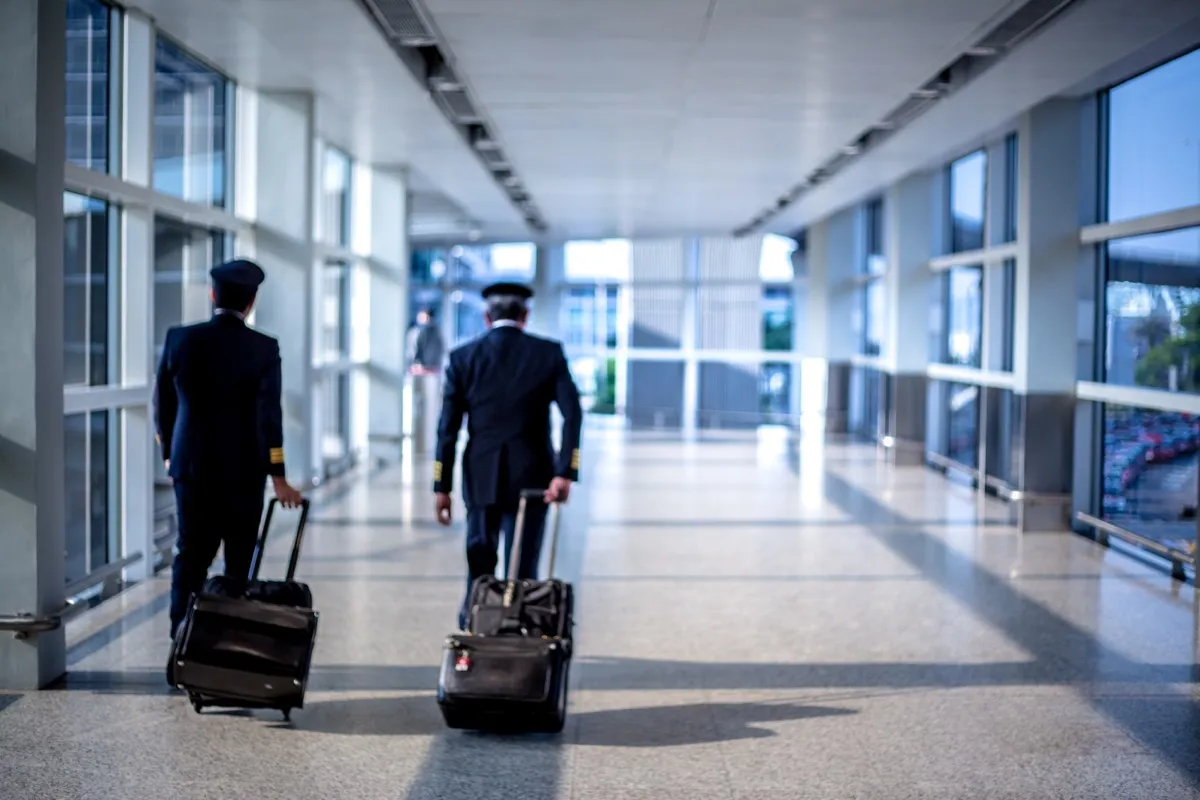
The security checkpoint might be the great equalizer between first class and economy passengers, but there's still one type of elite traveler that mostly gets to avoid the process altogether.
"Domestically, at most large airports, pilots and flight attendants pass through a separate checkpoint. Our credentials are verified, and we are let through," Patrick Smith, an airline pilot and author of AskThePilot.com, tells Best Life. "This 'Known Crew Member' (KCM) system, as it's called, has been in place for a little over a decade."
But it's still not unheard of to see a pilot or flight attendant walking through a metal detector. "Occasionally, you'll be selected for 'random screening,' as we call it, and will need to pass through a normal TSA checkpoint," Smith says.
3
The TSA can't arrest you at the checkpoint—but they can alert authorities.
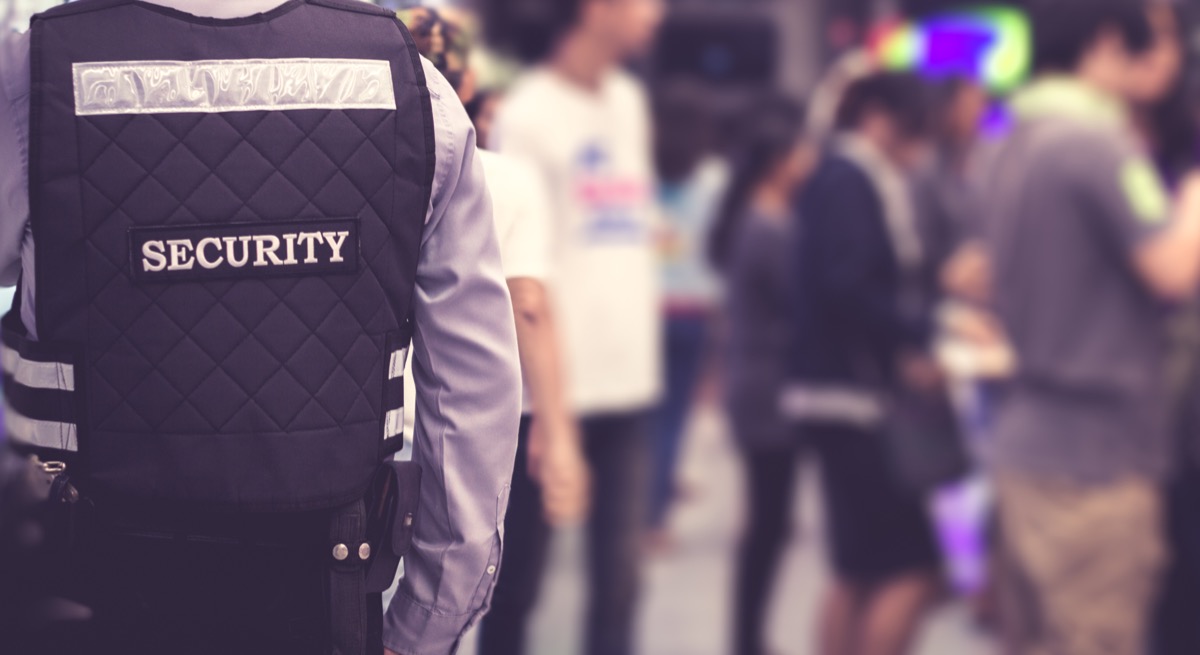
For many people, a pass through a security checkpoint is a rare brush with official authority figures. After all, their presence is a stopgap between the outside world and the relative safety of a sterile terminal that has been swept for threats. But contrary to popular belief, the agents checking your bags are far different from law enforcement officers.
"Notice the uniforms adopted by TSA," Smith writes on his blog. "Screeners are now called 'officers,' and they wear blue shirts and silver badges. Not by accident, the shirts and badges look exactly like the kind worn by police. Mission-creep, this is called. In fact, TSA workers do not hold law enforcement power as such—much as they have done a good job of fooling people into believing otherwise."
"TSA holds the authority, legitimately, to inspect your belongings and prevent you from passing through a checkpoint. It does not have the authority to detain you, interrogate you, arrest you, or otherwise compromise your rights. Both TSA and the traveling public need to remember this," Smith points out.
For more travel advice delivered straight to your inbox, sign up for our daily newsletter.
4
TSA agents are also not looking for illegal drugs in your bags.
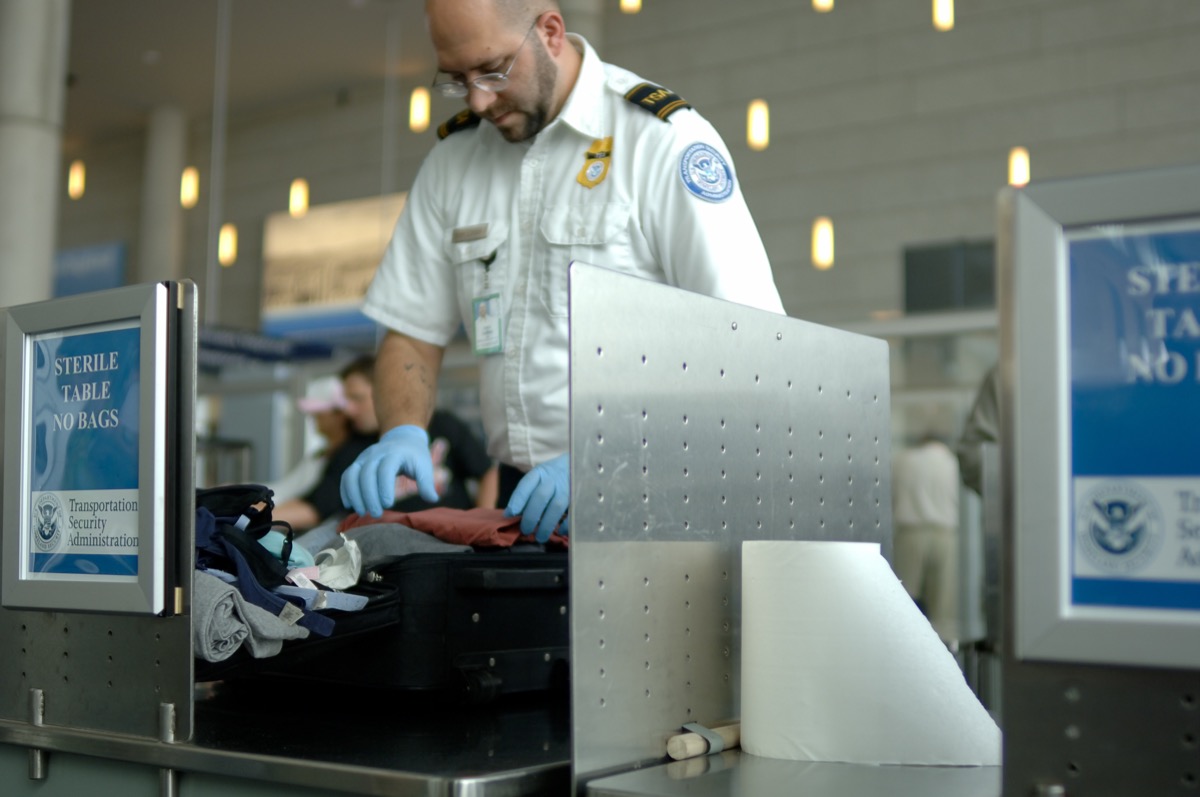
An airport security checkpoint is one of the few places where it's inevitable that someone will get at least a peek into your personal belongings. Naturally, this has made them a particularly harrowing place for anyone who may be carrying illicit substances—whether they happen to be legal in their state or not. But according to the agency, officers aren't necessarily on the hunt for your stash.
"TSA is not looking for drugs," Lisa Farbstein, a spokeswoman for the TSA, recently told The New York Times. "Our dogs sniff for explosives; they don't sniff for drugs."
That being said, it's not a good idea to go overboard: Agents can still report any serious instances to law enforcement, Farbstein says.
5
The TSA can be aggressive about the items it chooses to confiscate.
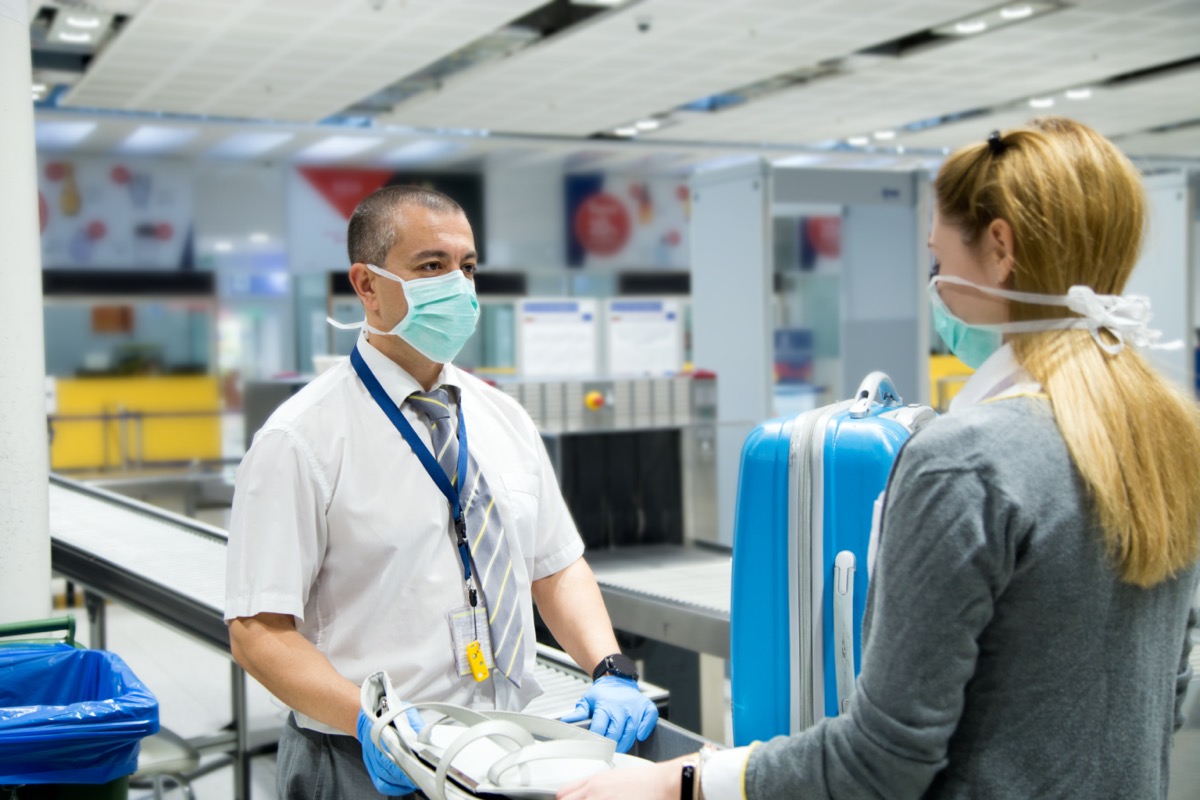
It often feels like anyone who's ever boarded a plane has at least one story about having one random item taken from them at an airport security checkpoint. In one example he cites, Smith explained that he once had an extra set of in-flight cutlery issued by airlines taken from his carry-on because it violated the agency's policy of having a serrated blade. But while it may seem like this was merely a case of overzealous agents, he points out several instances that seem even more ridiculous by comparison."
"Thousands of travelers have their own versions of stories like mine: the girl who had her purse confiscated because it was embroidered with beads in the shape of a handgun; the woman whose cupcake was taken away because the frosting was 'gel-like' and therefore a security threat; the G.I. Joe action doll confiscated on the grounds that its four-inch plastic rifle was a 'replica weapon'; the toddler who had his plastic Star Wars lightsaber taken away," he writes.
Concerned something could get taken from you at the last minute? Consider leaving anything that could even be considered remotely dangerous at home or put it into your checked luggage.
6
The full-body scanners used at security were far too detailed when they first rolled out.
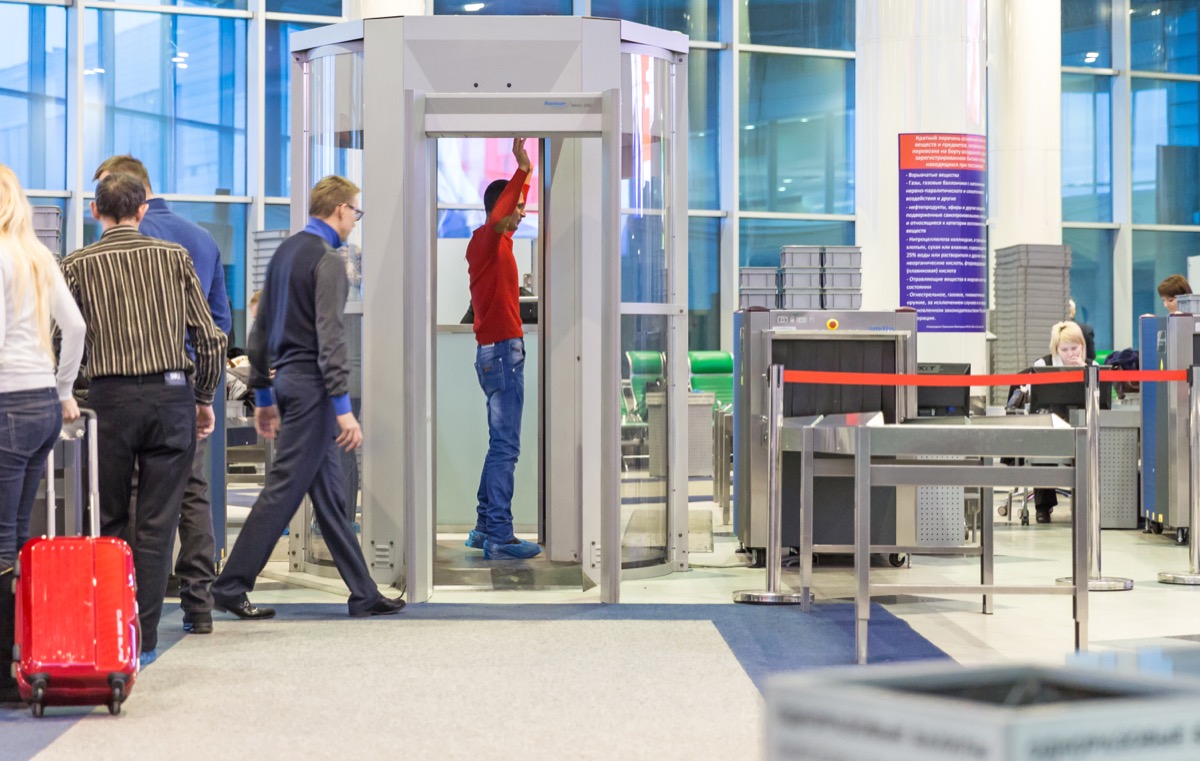
Even though they were expected to increase efficiency and safety, the rollout of full body scanners at airports roughly a decade ago was met with criticism that the machines violated passengers' privacy. And according to travel experts, the earliest days of the technology played out some of the worst fears travelers may have had behind closed doors.
"When the body scanner machines were first installed, you could pretty much see the passengers naked. My stepdad was a TSA agent and worked with some really bad characters who would openly make fun of male and female passengers," Ferguson tells Best Life. "He would always report this behavior, but it was eventually what led him to quit."
Fortunately, the TSA has changed the process since then to avoid these types of situations. "The scanners were updated a few years later and now show generic images," Ferguson says.
READ THIS NEXT: 5 New Tips From TSA to Make the Security Line Smooth and Easy.
7
Checkpoints have failed secret internal tests in the past.
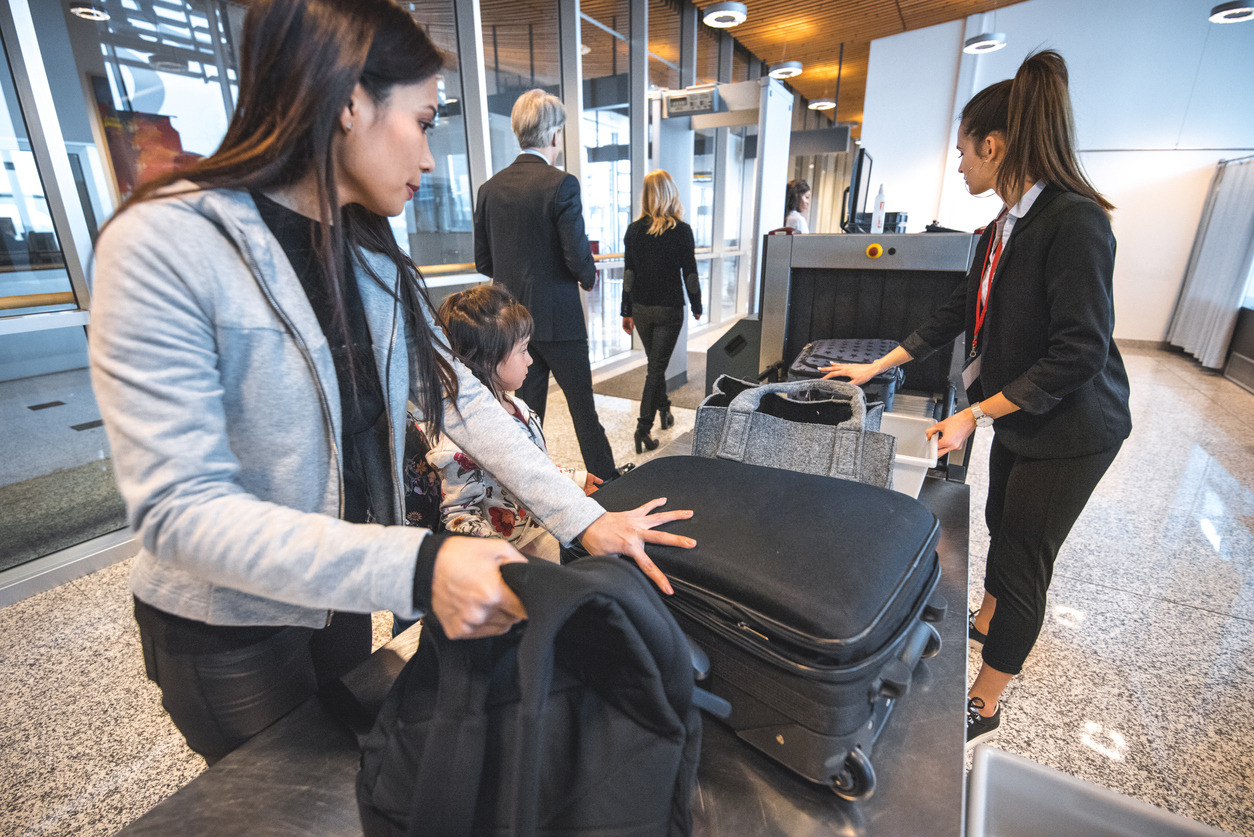
The unfortunate reality is that having a job as a TSA agent can feel particularly stressful, especially given near-constant interaction with irate or confused travelers. And while no one is expected to be absolutely perfect at their jobs, many would hope the officers tasked with keeping travelers safe on their flights can maintain a keen, watchful eye above all the chaos. Unfortunately, while they've become adept at inspecting passengers and their belongings before they board their flights, they've previously come up short when they themselves have come under scrutiny.
During an internal investigation carried out by the agency in 2015, members of the Department of Homeland Security (DHS) posing as passengers were able to pass potential weapons and fake explosives through checkpoints in 67 out of 70 attempts, ABC News reported. One such test included an undercover agent concealing a fake explosive strapped to his back that was missed even after setting off metal detectors.
Fortunately, DHS was able to provide the TSA with detailed feedback, which the agency said allowed it "to implement a series of actions, several of which are now in place, to address the issues raised in the report," according to a written statement from DHS to ABC News.
8
If you pack something especially weird, it might make its way onto the TSA's social media accounts.

Government agencies like the TSA may have the tedious task of enforcing rules day in and day out, but that doesn't mean they can't have a little fun with their jobs. While it may be something of an open secret, the agency runs a surprisingly light-hearted official Instagram account highlighting the bizarre items and incidents it comes across in its daily pursuit of secure air travel. Some notable finds include a taxidermied possum, a live lobster, CPR mannequins, and obscene amounts of tortillas—all of which are considered OK for travel, by the way.
9
You can refuse to go through the body scanner.
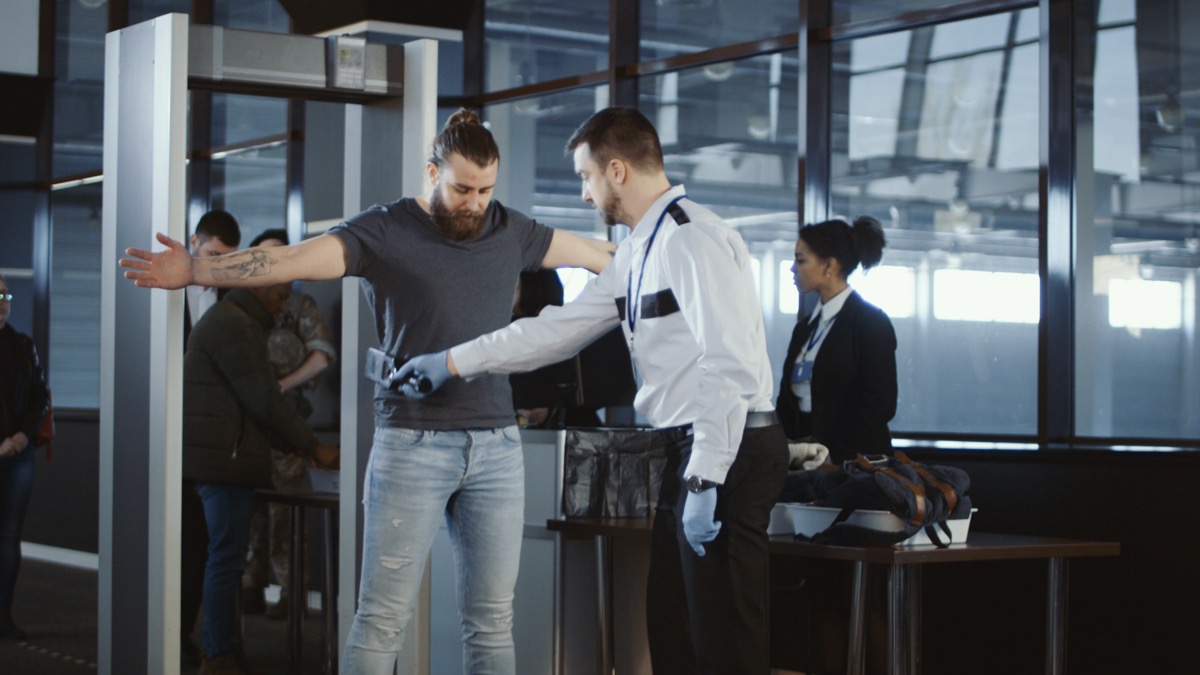
You can legally refuse to go through the scanner for whatever reason you may have.
"TSA doesn't want everyone to know they can skip this step because it will slow down the security process, but know you have a right to the alternative," says Nick Mueller, the director of operations at HawaiianIslands.com. If you are willing to do the alternative pat down, you can opt out of the scanner.
Anyone with a pacemaker or defibrillator definitely shouldn't be going through the scanner, but you can take the pat down option even if your health is top tier. "Make sure to let the TSA agent know, respectfully and with a willingness to this method, so you don't seem suspicious," says Mueller.
10
Being nice is key.

It might not be a secret but it's definitely worth noting that your experience will be much more seamless if you go about it in a calm way rather than grumbling and grunting the whole time. TSA is just doing their job and trying to get everyone, including you, through as quickly as possible.
"Having a friendly demeanor toward TSA, even when you're experiencing something that's inconvenient, stressful, or uncomfortable, can really elicit a different reaction from security agents than when you approach these situations with a bad attitude," says Jon Stephens, the director of operations at Snowshoe Vacation Rentals.
This can be as simple as sharing a smile or saying thank you when you're going through the security line.
